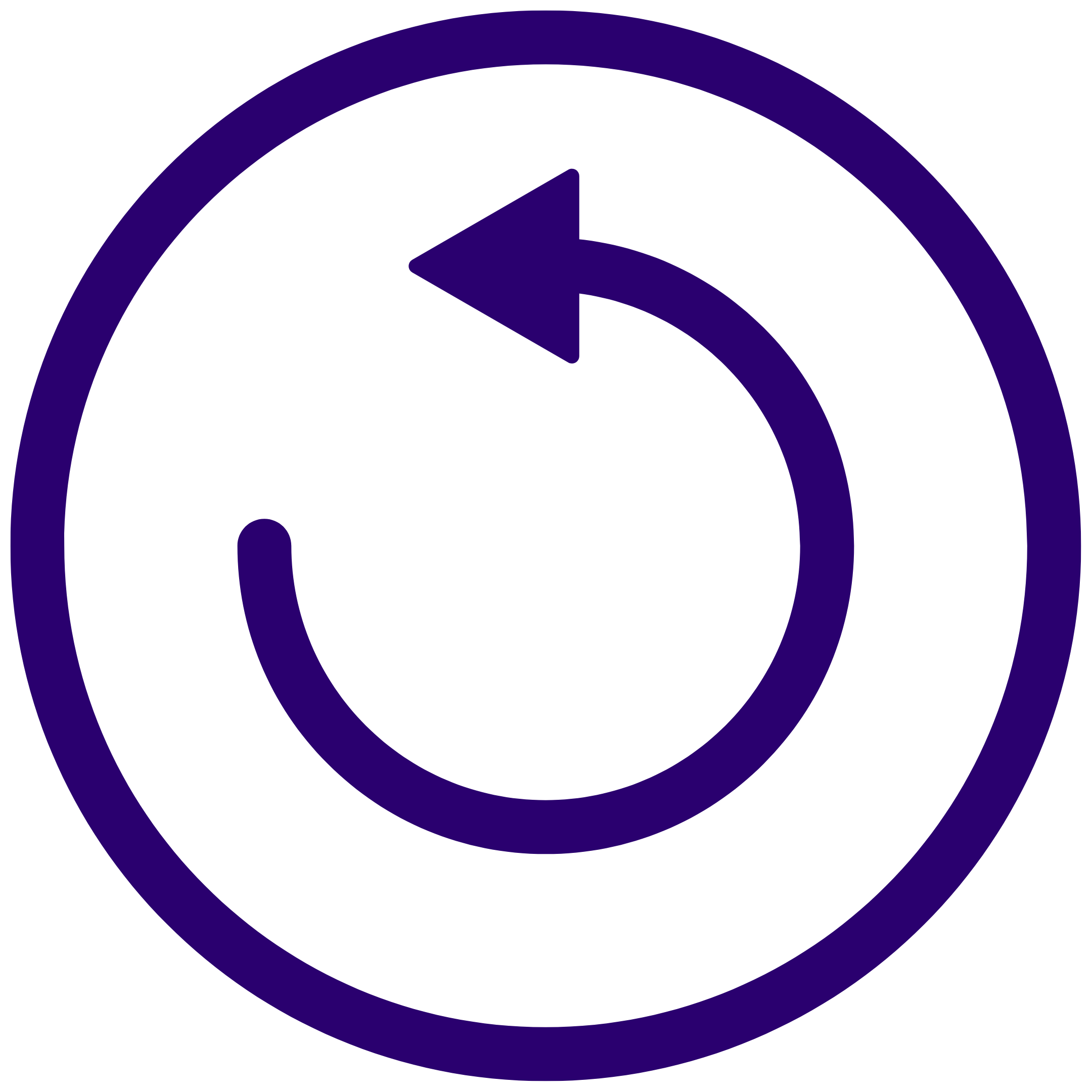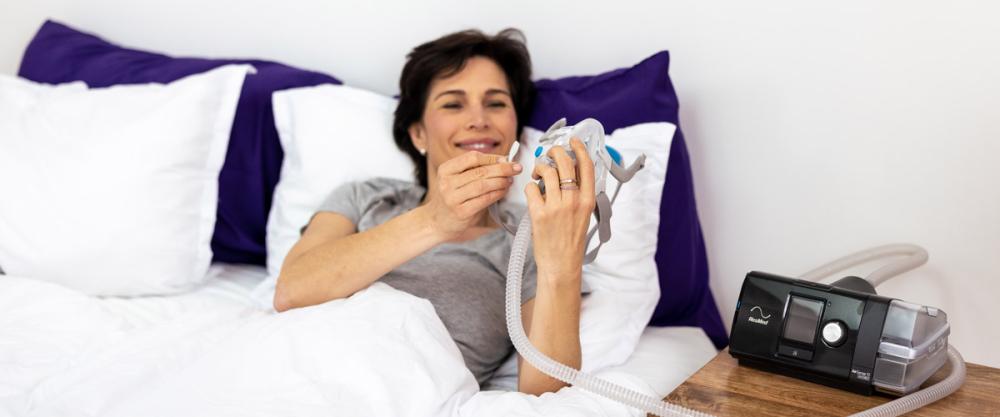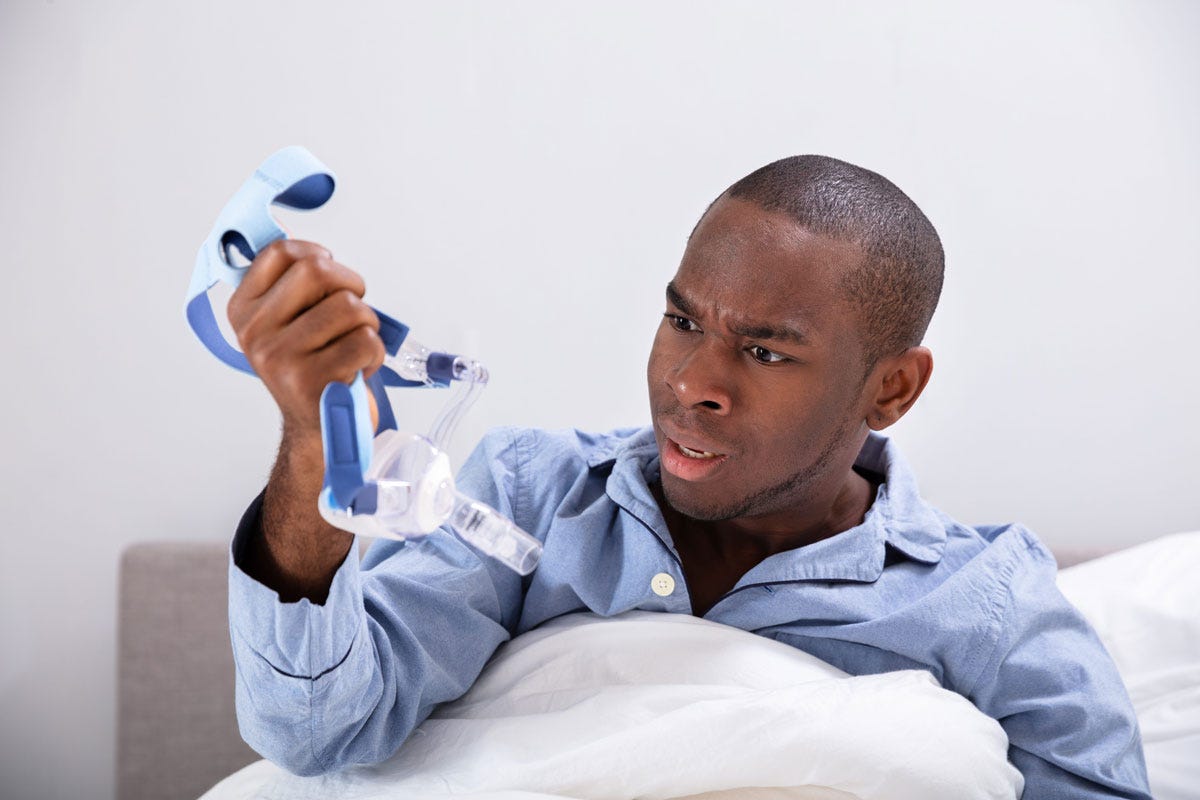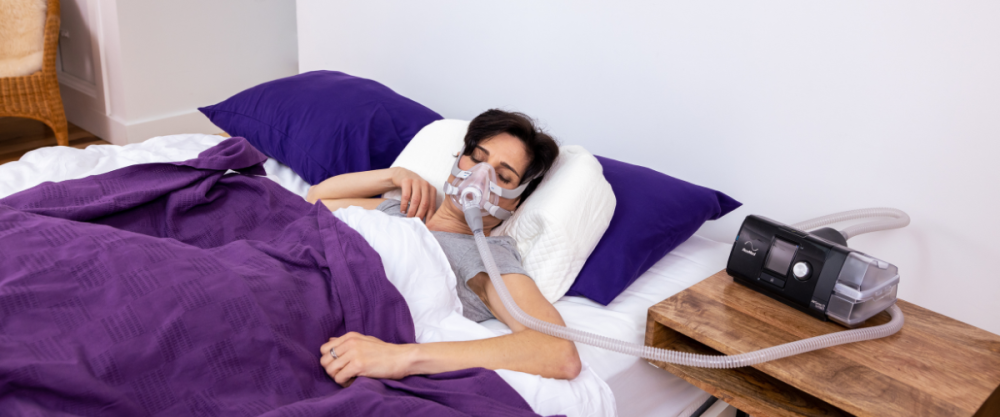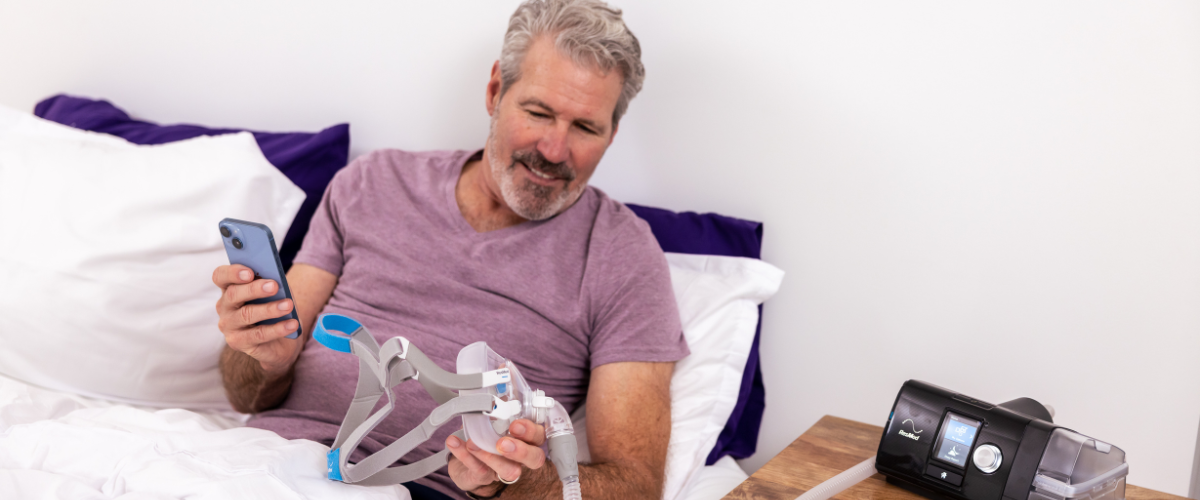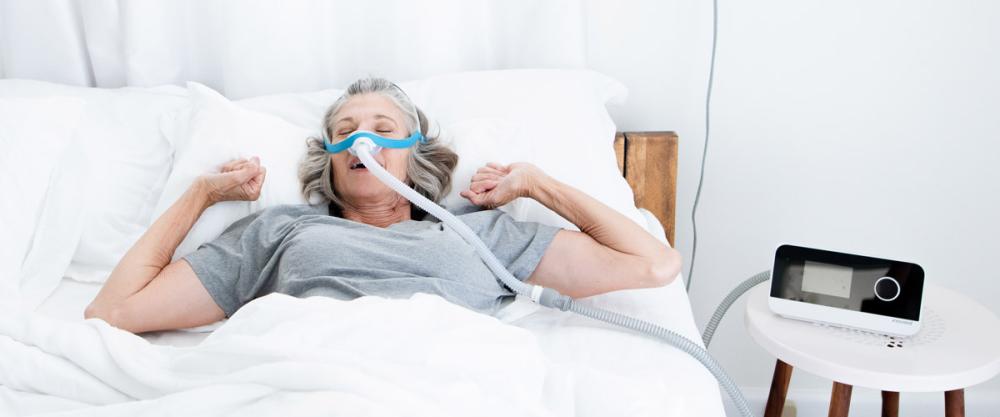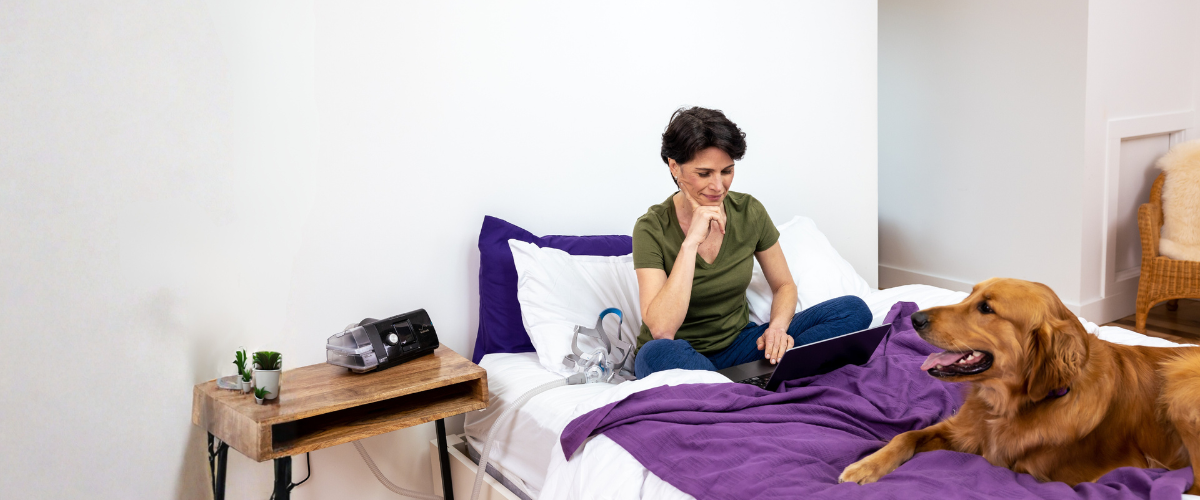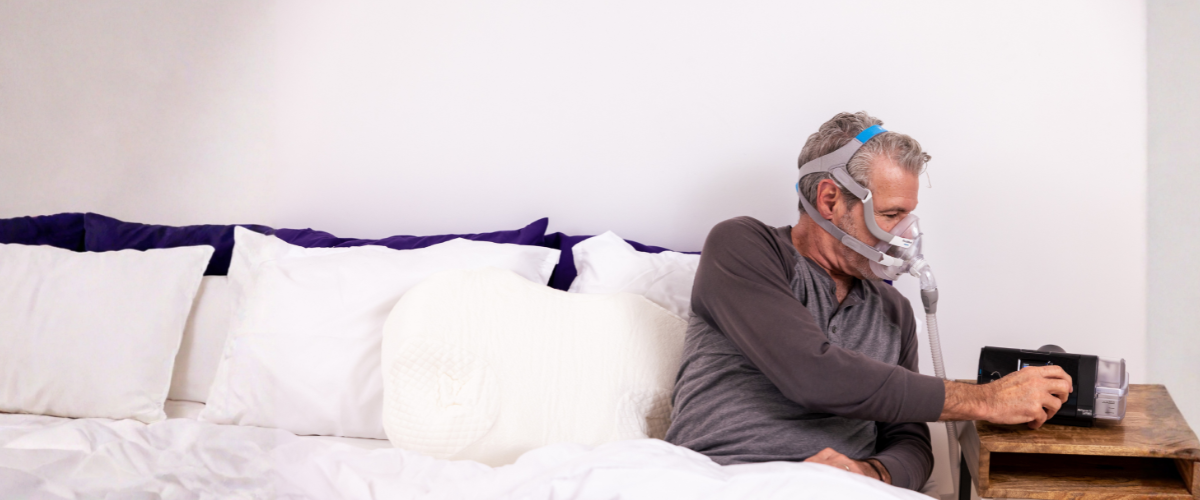Want to shed a few pounds? Treating sleep apnea can benefit your health in more ways than one. Check out exactly how CPAP and weight loss go together.
Using Your CPAP For Weight Loss
Before we can cover the solution, we need to explain the problem which is sleep apnea and weight gain. Obesity increases the risk for obstructive sleep apnea (OSA) because when the fatty tissues around your throat become larger, they become heavier, making it easier for them to collapse on your throat and block air passage while you sleep. This can also lead to more sleep disruptions, increasing sleep apnea symptoms.
However, even though being overweight increases the risk of sleep apnea, it affects people of all shapes and sizes. Some individuals simply have a narrow airway or large tonsils. But sleep apnea can attribute to weight gain.

Decreased Oxygen Levels: When you experience an apnea or period during sleep when your breathing stops, your body is prevented from receiving proper restorative rest. This leads to crippling day time fatigue that can interfere with your schedule. You may not feel like you have the energy to stick to your workout routine or diet. It feels much easier to go home with fast food and lay on the couch.
Hormone Effects: Lack of sleep also impacts crucial hormones for regulating appetites such as leptin and ghrelin. Sleep apnea lowers levels of leptin which is responsible for signaling to your brain that you’re full and have had enough to eat. It also increases levels of ghrelin, the hunger hormone. So, you can’t see to fill up and continue reaching for snacks all day.
Along with weight gain and obesity sleep apnea can increase the risk of:
- High blood pressure
- Heart Disease
- Type 2 diabetes
- Depression
- Chronic fatigue
- Increased traffic accidents
- Stroke
- Mood swings
- Inability to concentrate
CPAP Weight Loss
So, how does a CPAP work exactly? As a continuous positive airway pressure device, it delivers a constant stream of oxygen to hold your airways open during the night. Therefore you’re able to get the oxygen your body needs to mentally and physically rest.
More Energy: CPAP benefits weight loss because using it to treat sleep apnea restores your energy and can improve your mood. This may help with workout routines and activities because you’ll feel positive and better motivated to be active. Suddenly, instead of falling asleep while watching TV you can go for a walk, play with your kids, have the energy to cook a healthy dinner, and more.
Balanced Hormones: When people get more sleep the levels of leptin are increased and ghrelin is decreased for a more regulated appetite with steady energy and fat burning and feeling satisfied after eating. This could help reduce cravings for junk food.
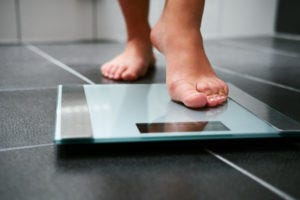
One study involving 300 adults studied weight loss over time with the use of a CPAP machine. 89 patients had no sleep apnea symptoms and didn’t use a CPAP, 164 patients reported sleep apnea symptoms and didn’t receive a CPAP, and 47 patients with sleep apnea symptoms used a CPAP.
The people who used a CPAP lost an average of 5.7 pounds more than those with sleep apnea that didn’t use a CPAP and 7 pounds more than the group without sleep apnea symptoms. It’s important to note that all of the participants were also restricted to 800 calories a day, but even with dieting, the group that used their CPAPs still lost the most weight.
Does Sleep Apnea Go Away With Weight Loss?
Maybe. Weight loss can reduce the amount of fatty tissue around your neck. If enough fat is lost around the neck reduces the chance for the tissues to collapse and block your airways. Then if you don’t have an obstruction, you won’t need a CPAP.
However, to get the motivation to work out and power to resist cravings you may need to use your CPAP to help you lose weight until your doctor tells you that sleep apnea treatment is no longer needed.
Jim Uren lost 150 pounds over seven years with his CPAP. While he also started dieting and exercising to shed pounds, he attributed the energy to do so to his CPAP. It’s important to note that he continued to use his sleep apnea machine until he was medically cleared by his doctor.
Jim explained, “For me, using my CPAP every night was an important part of my weight loss journey. Without the CPAP I would feel exhausted and very hungry throughout the day. However, by using my CPAP I had more physical and emotional energy to stick with my weight loss program. So ironically in my case, using my CPAP was what helped me to eventually get rid of my CPAP because I no longer had sleep apnea.”
Damian Birkel also shared, ”I have used a CPAP for over 10 years. Although it took a little bit of time to get used to, I could feel an immediate difference in my ability to sleep.

Prior to my CPAP, I was battling with an overweight condition. I couldn’t drop below 250 pounds (and gaining), no matter what diet or exercise I tried. As a matter of fact, my physician warned me to reduce my weight to at least 225 pounds, with an ideal weight of somewhere between 200 and 210 pounds.
After CPAP, I had more energy, was able to think more clearly, and gradually began to lose weight. More energy allowed me to begin gradual exercise. I dropped down to and maintained my weight at 225 pounds.
I use my CPAP without fail every night. As time goes on, more good news...I have dropped to a weight range between 200 and 215 pounds.”
Check with your doctor to see if weight loss is a viable treatment plan. However, you will still need to use your CPAP until you lose weight. If your sleep apnea is caused by another factor such as having a narrow jaw or deviated septum, losing weight may not get rid of the need for your CPAP.
Will CPAP Cause Weight Gain?
Possibly, more studies are being performed to either confirm or deny that CPAP machines lead to weight gain. One thing to consider with CPAP use includes the patient's diet and exercise habits to burn calories. It has been suggested that when you use your CPAP and no longer experience apneas during the night. As a result, your body doesn’t burn as many calories because it doesn't have to work to restore your airflow.
One study found that the weight gained during CPAP therapy was lean body mass (LBM), which in contrast to an increase in fat is a positive weight gain. It’s associated with improving overall health and improved exercise capacity.




